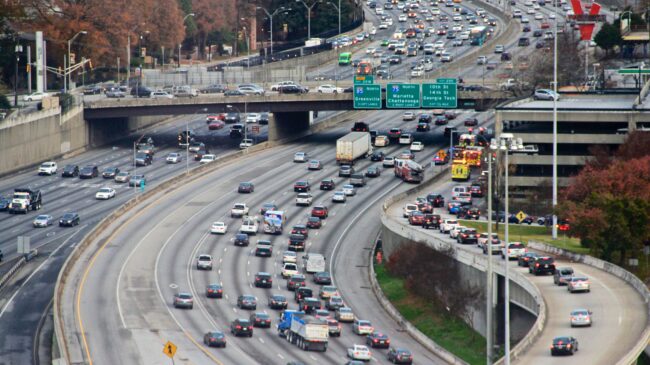The motor fuel tax, the largest funding source for Georgia highways, is losing its purchasing power. A combination of more electric vehicles and hybrids on the road, along with the improved fuel efficiency of newer cars, has caused the gas tax to lose more than 50% of its value over the last 30 years. Georgia’s highways need a new, sustainable funding source. Conducting a mileage-based user fee (MBUF) pilot program will help determine if mileage fees are a good option for Georgians.
1. A mileage-based user fee has advantages compared to the gas tax:
- Fairness: MBUFs ensure that the drivers who use highways are the ones who pay for them.
- Choice: MBUFs give users more options over how and when they pay the fee.
- Transparency: Most people don’t know what they currently pay in fuel taxes. MBUFs are much more transparent to users. Drivers see what they pay and what they get for their money.
- Better Incentives: MBUFs can give better information and incentives to drivers and state transportation departments on the efficiency, quality, and costs of roadways.
- Flexibility: MBUFs allow states to properly prioritize and adjust highway expenditures as conditions, consumer demand, and technology change.
- A mileage-based user fee pilot can examine common concerns:
- Privacy: Pilot programs typically use private account managers to test MBUF options and policies and ensure drivers have privacy and control over their data.
- Double Taxation: MBUFs should be a replacement for fuel taxes, not a supplement to them.
- Diversion: MBUFs can be dedicated to roadways, unlike gas taxes and other infrastructure funding sources, which have been diverted away from their primary purposes.
- Costs of Collection: These costs are currently higher than the gas tax but decrease with scale.
- Equity: Fuel taxes can be regressive. They impact low-income families, who tend to have less fuel-efficient vehicles. MBUFs charge for road use, not fuel use, and are less regressive than gas taxes.
- Rural Drivers: Rural drivers already typically pay more in fuel taxes due to the longer distances and less fuel-efficient vehicles they tend to drive. Thus, rural drivers can benefit from MBUFs.
- Mileage-based user fees are already widespread in the United States:
- Twenty states and two multi-state coalitions have conducted MBUF pilot programs.
- Closer to Georgia, North Carolina and Virginia have already run MBUF pilot programs.
- Virginia, as well as Oregon and Utah, have moved ahead with permanent MBUF programs.
- The Federal Highway Administration provides grants to states to test MBUFs.


